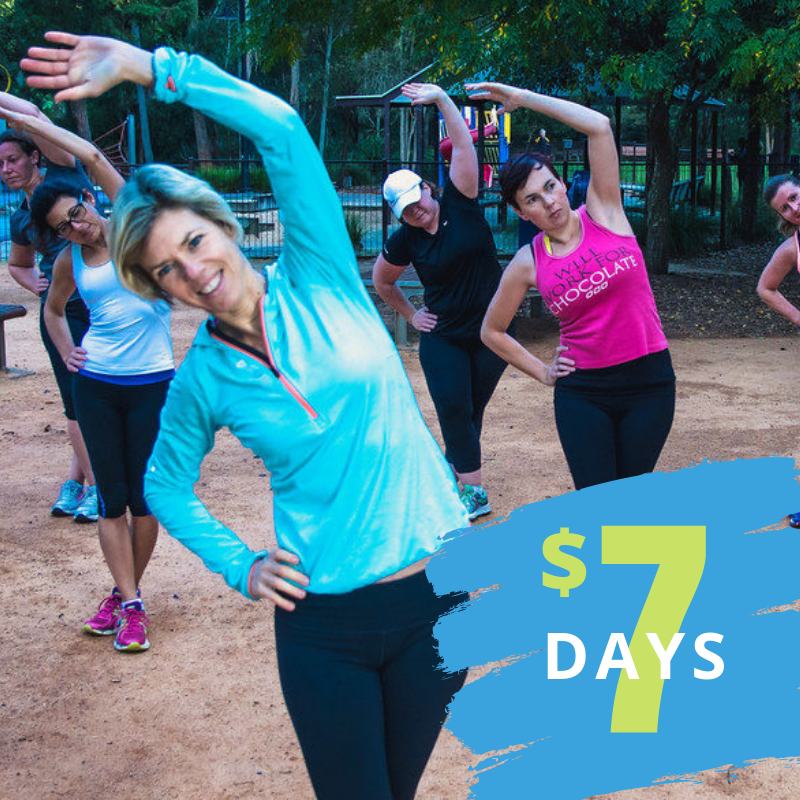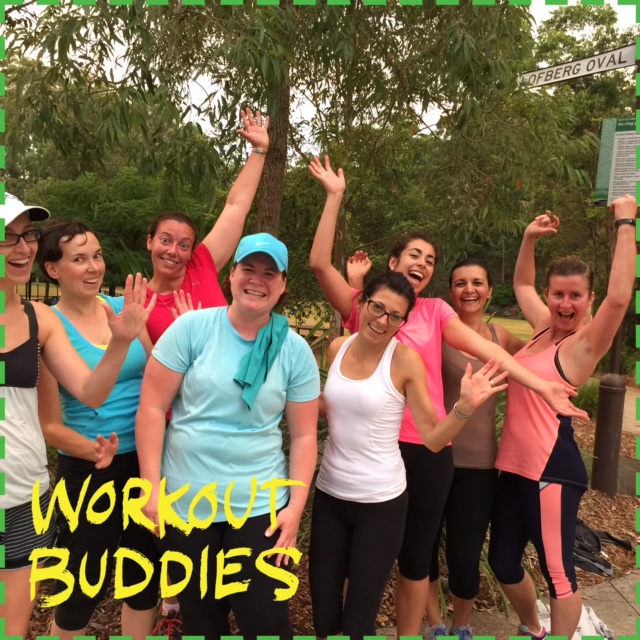Get out of your head…
Worry, anxiety and depression can dig their claws into you leaving you unable to focus anything else. It can be a frustrating feeling of being stuck inside your head.
So how do you break free from the cycle of worrying thoughts?
Whilst mindfulness and meditation can help, today I’m focussing on another tool to add to your self-help kit… not surprisingly, it’s about getting out of your head, into your body and being physically active.
It’s EXERCISE.
What’s your mindset on movement?
Exercise or physical activity is great for maintaining physical health and toning muscle (help helping to lose fat), BUT, moving our bodies is also key to having a healthy mind.
Research has proven a strong link between physical activity and better mental health. And even better: the feel good effects last long after you have finished exercising!
“Exercise is a brilliant way to change our mood,” says Jean Hailes psychologist Gillian Needleman.
“The benefits of moving more extend way beyond the time we are exercising and into the rest of our day.”
Ms Needleman says that exercising for your mental health and overall wellbeing can also be an important shift in mindset.
“As women, we can sometimes exercise for our appearance, which can be a negative experience, with self-criticism and judgement as we aim for a body we think we ‘should’ have,” she says.
“Exercising for our mental wellbeing is a more gentle, loving approach. It can be an acceptance of oneself, with the goal of moving our body to shift our mind.”
In times like these …
2020 and the challenges it has brought to us all is a key time to focus on mental wellbeing and resilience.
With other forms of self-care – such as spending time with friends, visiting a park or going out to a café – less available to us during this pandemic, it makes physical activity even more important now.
Everyone has faced massive challenges this year, yet one of the things that has been available to us throughout is the ability to go outside to exercise. That’s because the government recognised the essential benefit this has for all of us.
Personally – I loved walking around the block with my family and chatting to neighbours (at a distance). I have heard countless similar stories and every single person enjoyed the experiences.
So remember: outdoor exercise is still readily available to most of us. Plus – we have an amazing climate in Australia so go outside and get moving (go early during the summer to beat the heat!)
The body-brain link
So how does movement affect mental health? What’s the connection between body and brain?
Being physically active boosts your feel-good hormones like serotonin. Add to that exercising outside, preferably in a green space, you get the added benefit of fresh air, and the soothing effect of nature.
Moving your body is a natural antidepressant as it lowers cortisol (stress hormone) levels in the body.
PLUS: sleep is improved, energy levels boosted and stamina increased. What’s not to love?
Where to start?
It’s important to remember that worry and sadness are a normal part of being human. It’s when anxiety and depression take hold and start affecting everyday life and activities that it might be time to take action or seek help.
When considering exercise as part of your self-help toolkit, it’s worth noting that any regular movement is beneficial. You don’t have to “flog” yourself – going for a walk (take a friend along for added feel-good effect); go for a bike ride; take the stairs instead of the lift… it all works!
My key tips to adding movement into your day:
– break it down into smaller chunks (start with 10mins)
– tack it onto an existing habit eg go for a walk then have lunch – it’s easier to remember and keep it up
– don’t wait for inspiration (it’s fickle and unreliable) – just do it
– surround yourself with supporters: friends, family will help keep you on track (encourage them to join you!)
Remember: every little bit counts! Don’t feel like you have to go for hours at a time or you’ll never do it. Aim to move a little bit more each day – take the stairs; park further from the shops etc
The Australian Government guidelines recommend a minimum of 2.5 hours of moderate intensity physical activity each week to improve wellbeing.
What does “moderate” mean? Aim for an effort of 5 or 6 out of 10 (you should be puffing a bit, but still able to talk.)
Your self-care kit
I’m not suggesting that exercise will fix everything. If you are suffering from ongoing, sever anxiety or depression, please seek help from a medical professional.
Being physically active is a key player in your self-care kit which may include therapy, even medication.
Except in unusual circumstances, exercise is beneficial for everyone. A regular, varied exercise routine helps prevent chronic mental health issues; helps improve sleep, manage stress and reduce the risk of age related diseases such as osteoporosis, heart disease and metabolic syndrome.


